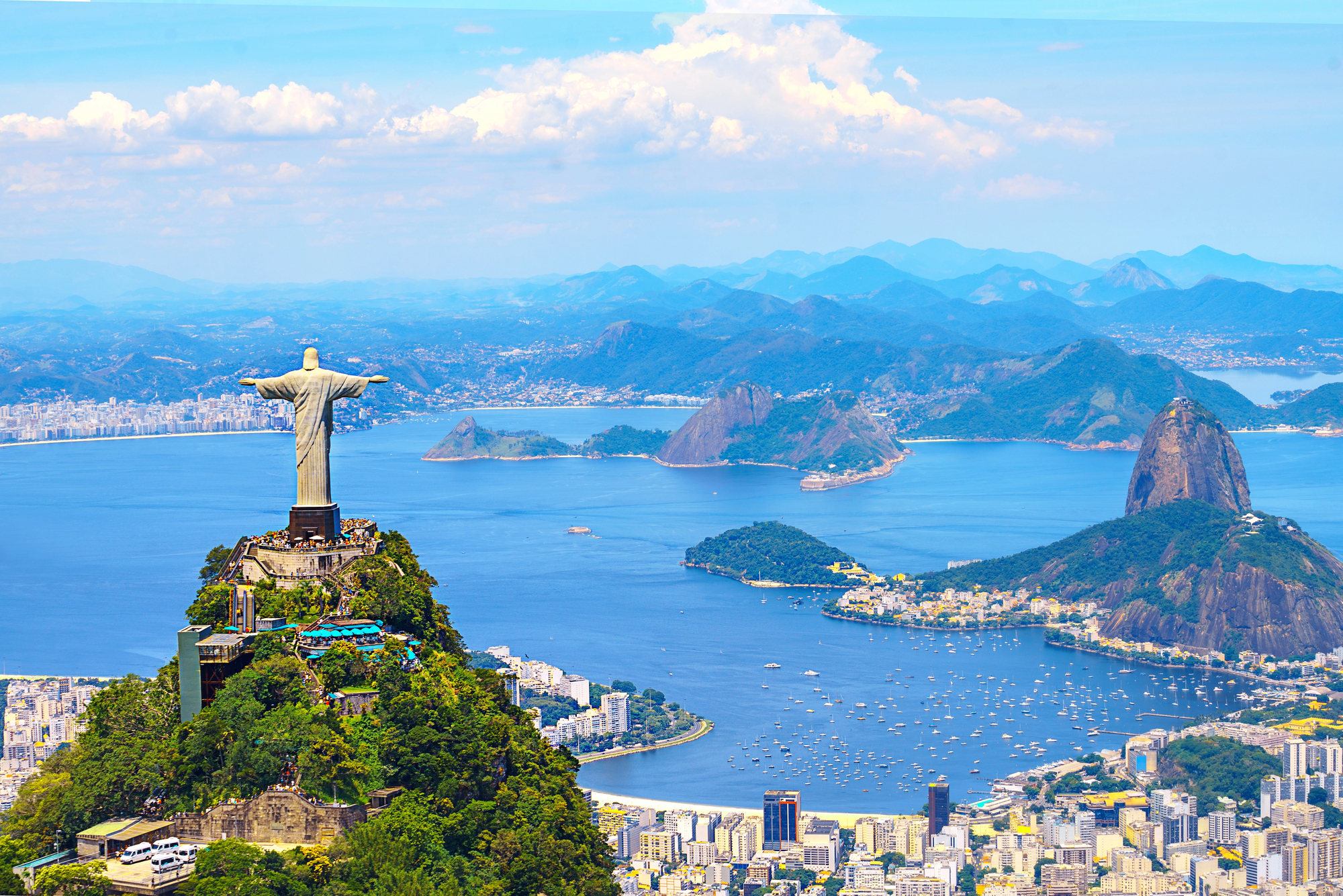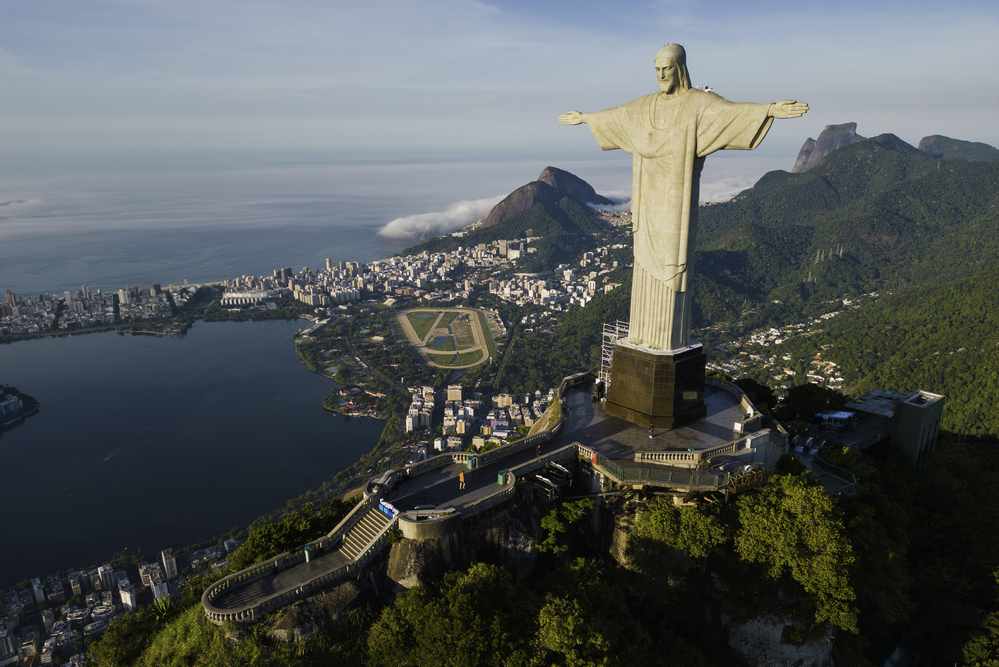Thinking about traveling to Brazil and wondering about the necessary requirements to enter the country? Then stick with me for a few minutes, because I’ve put together a list of 8 tips on what you should know before visiting Brazil.
General aspects of Brazil
Located in South America, with Brasília as its capital, Brazil is a presidential federal republic. According to IBGE, in 2022, Brazil’s population was 203,080,756, with 87% living in urban areas.
Brazil is warm and welcoming to foreigners; we’re always ready to receive visitors with open arms. Our country is extremely diverse, both in terms of culture and nature. Here, you’ll find a vibrant mix of people and customs that make each corner of the country unique.
Whether you’re interested in paradise-like beaches, tropical forests, bustling cities, or diving into a rich cultural heritage, Brazil has something for everyone.
When it comes to culture, you’ll notice the country exudes contagious joy. The Brazilian way of life is famous for its hospitality and zest for enjoying life. Events like Carnival, one of the biggest in the world, and regional celebrations such as São João in the Northeast show how music, dance, and festivities are part of our DNA.
Speaking of geography, Brazil has continental dimensions. From the Amazon, the largest tropical rainforest in the world, to the Iguaçu Falls in the south, passing by the peaks and waterfalls of Chapada Diamantina, countless stunning landscapes await you.
Even within the same city, you can find incredible contrasts: in São Paulo, for example, there are skyscrapers and modern shopping centers, but also huge parks and one of the largest cultural hubs in Latin America.
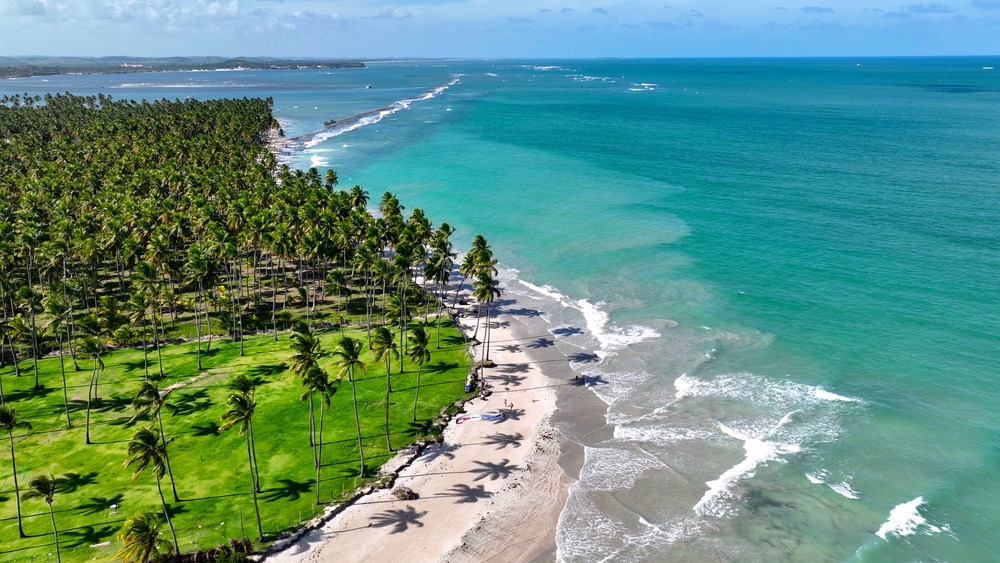
What to know before going to Brazi
Now that you know the general aspects, additionally, it’s important to know some practical matters before visiting Brazil. Let’s go ahead!
1 – Documents and Visas
The first key point about what to know before visiting Brazil is the necessary documentation. Brazil follows a reciprocity policy: if Brazilians don’t need a visa to enter your country, you won’t need one to enter ours, in the case of tourism. On the Brazilian Government’s website, you can find all the information about visas related to your country.
According to the Gov.br portal (2023), it’s required to present proof of vaccination against COVID-19, either printed or in electronic format, or proof of a COVID-19 infection screening test, showing a negative or undetectable result, such as an antigen or RT-PCR test performed up to 1 (one) day before boarding.
The vaccination or test certificate mentioned above must be presented before boarding to the airline operating the flight or to the responsible party for the vessel.

2 – Language
Portuguese is the official language, but you’ll find that many people in tourist areas speak at least a bit of English or Spanish. And, of course, learning a few words in Portuguese, like “por favor” (please), “obrigado” (thank you), and “quanto custa?” (how much does it cost?) can make your experience easier and earn you extra smiles.
Generally, in large urban centers, businesses are prepared to welcome tourists, and English is widely spoken, so you shouldn’t have trouble communicating and feeling at ease.
3 – Climate
Another important thing to know before visiting Brazil is the climate of each region. While Brazil’s climate is predominantly tropical, varying from hot and humid in the Amazon to drier and milder in the South, there are some key differences.
For example, cities like Curitiba and São Paulo can be surprisingly cold during winter. So, it’s worth checking the weather forecast before your trip and choosing the season that best matches your preferences.
In the North, the climate is hotter and more humid, with an average temperature of 25°C to 28°C, covering states like Amazonas, Pará, Roraima, Acre, Rondônia, Maranhão, and Mato Grosso. In the Northeast, the climate is hot and dry, with little rainfall, and in some areas, precipitation is extremely scarce.
The states in this region include Piauí, Ceará, Bahia, Rio Grande do Norte, Paraíba, Pernambuco, Alagoas, and Sergipe. The tropical climate, in turn, is characterized by two variations — one hot and humid and the other cool and dry — covering most regions of Brazil, particularly the Midwest, part of the Northeast, and Southeast, including São Paulo, Minas Gerais, and Northwestern Paraná.
4 – Currency
The country’s currency is the Real (R$), and several payment methods can be used, such as cash, credit and debit cards, as well as the famous and revolutionary Pix.
Pix is a mobile-based transaction system that allows instant payments without needing cash on hand. It’s widely accepted almost everywhere, but it’s a good idea to carry some cash, especially if you plan to explore less touristy destinations where connectivity might be limited.
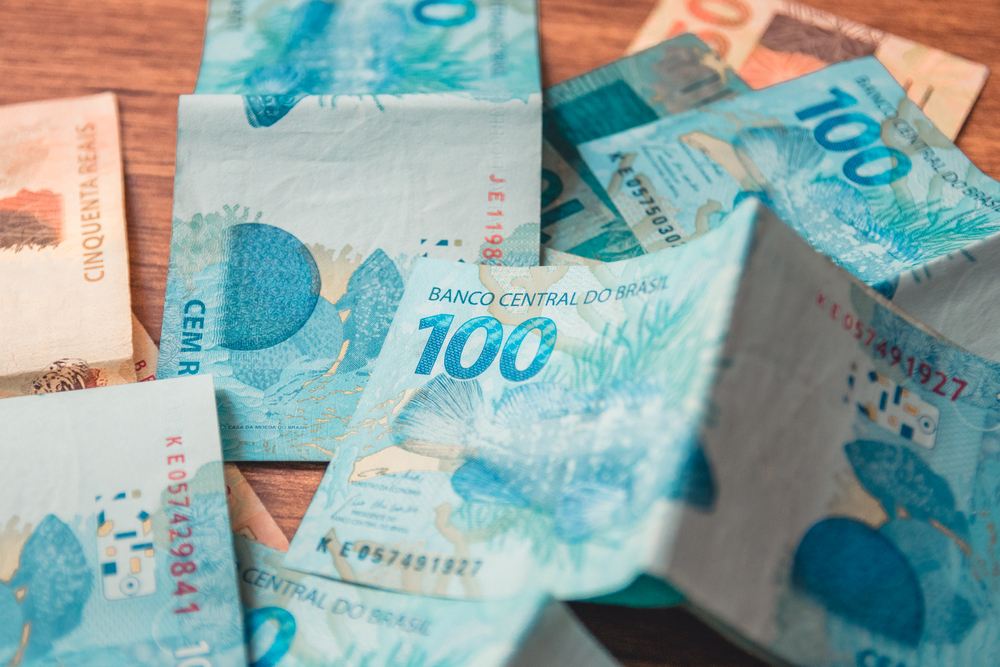
5 – Gastronomy
We have a rich and diverse cuisine that reflects the mix of indigenous, African, European, and Asian cultures forming the foundation of our society. The culture and traditions of Brazilian gastronomy are passed down from generation to generation.
In many places, especially in rural areas, food is still prepared on traditional wood-fired stoves, which was once a necessity and is now considered a luxury and a hallmark of quality living.
Don’t miss out on trying dishes like feijoada, barbecue, moqueca, and açaí, which bring a bit of Brazilian flavor to your palate. To accompany these feasts, anywhere in Brazil, you’ll find the country’s most iconic drink: cachaça. Made from sugarcane, this high-proof spirit is a must-try!
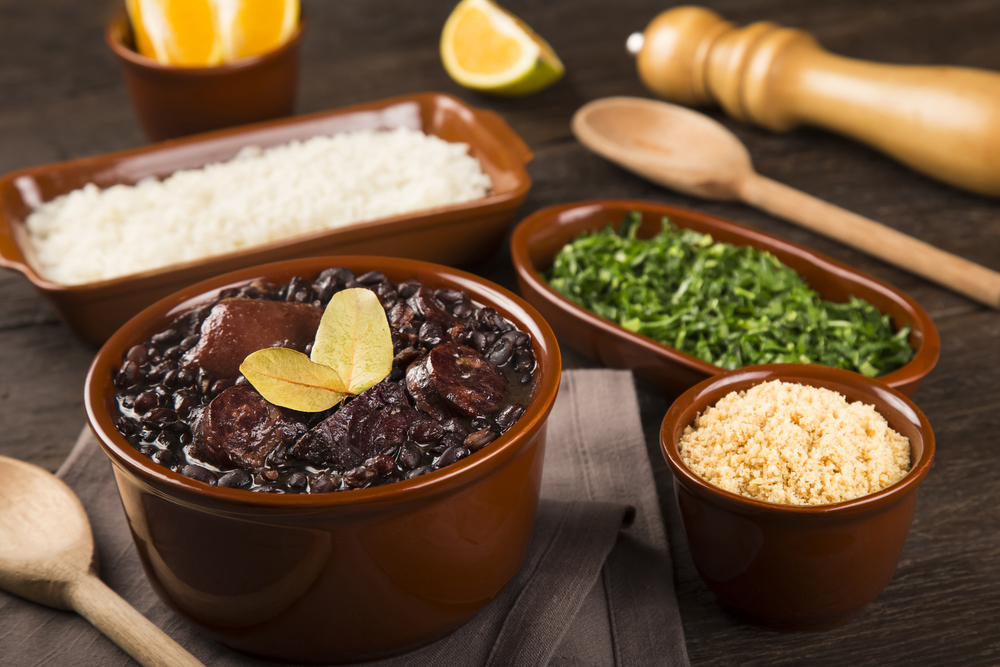
6 – Transportation
For those seeking more comfort and freedom, renting a car can be a good option, allowing you to go anywhere at your own pace. There are several car rental companies, and you can arrange everything online. The car will be ready, fueled, and inspected for you to enjoy without worries. However, a valid driver’s license is required.
Another option is public transportation: buses are the main means of travel, with affordable prices. There are also taxis, Uber, and motorcycle taxis, which charge fares based on the distance traveled.
Be sure to agree on the price at the beginning of the trip to avoid unpleasant surprises at the end. Additionally, we have metro systems in São Paulo, Rio de Janeiro, and Brasília.
7 – Safety Tips
We already know Brazil is amazing, but unfortunately, safety remains a concern. Crime is prevalent in some areas, and despite efforts by authorities, you need to stay alert and avoid displaying valuables. Here are some tips to feel safe and enjoy your trip:
- Choose accommodations in busy neighborhoods and avoid empty, dark streets when going out, regardless of the time.
- At tourist spots, use your phone for photos and videos, but stay aware of your surroundings and keep a firm grip on your belongings.
- Avoid wearing valuable jewelry, keep bags in front of your body, and don’t carry too much cash.
Additionally, be cautious of scams involving people posing as police officers. If approached, always ask for identification. Sadly, it’s also common for children to beg to support gangs; only help if you’re sure it’s for a family in need.
8 – Survival Guide for Tourists in Brazil
- Always opt for bottled water, as tap water may not be suitable for drinking.
- Don’t forget sunscreen.
- Bring an adapter for type N electrical outlets.
- Always have your personal documents and a local emergency contact handy.
- In case of emergencies, the numbers are:
190: Police assistance
192: Ambulance services
193: Fire emergency
9 – Useful Portuguese Phrases
Greetings: bom dia (good morning), boa tarde (good afternoon), boa noite (good evening); oi (hi), olá (hello)
Courtesy words: obrigado(a) (thank you), com licença (excuse me), por favor (please).
Conclusion
So, whatever your travel plans, Brazil offers an incredible variety of attractions and experiences that go far beyond the stereotypes of beaches and soccer. Since it’s such a large country, it’s not advisable to try to explore everything at once — because it won’t be possible, haha.
Instead, explore by regions and get ready to discover the surprising diversity, lush nature, and most importantly, the welcoming people who will always be ready to share a bit of our culture with you.
